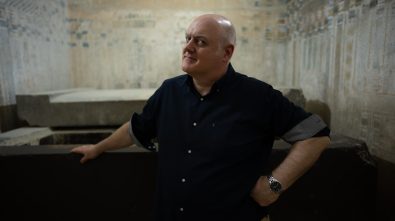‘How Sherlock Changed the World’ review: Fans should like it
Newsday, VERNE GAY • 16th December 2013
Newsday, VERNE GAY
December 16, 2013
THE SHOW: “How Sherlock Changed the World”
WHEN | WHERE: Tuesday night at 9 on WNET/13
WHAT IT’S ABOUT: The name is Holmes — Sherlock Holmes — and before launching a thousand movies, books and TV series — he launched a brand-new discipline. Forensic scientist Henry Lee explains that Arthur Conan Doyle’s creation “changed our whole world of criminal investigation,” and this two-hour film lays out in considerable detail that impact.
Holmes, and Conan Doyle through his various tales, pioneered forensic analysis, splatter analysis, ballistics tests and a revolutionary way of processing the crime scene. Pre-Holmes, “the cops were not there to be evidence gatherers or interpreters [but] the criminal investigation involved rounding up the usual suspects,” says criminologist Brent Turvey.
MY SAY: In the spirit of Holmes, let’s pause a moment to sift through the evidence that may explain why this broadcast has landed on TV at this very moment. Ah yes, over here, Watson! On Jan. 19, the PBS hit, “Sherlock” — starring one of the world’s hottest actors (Benedict Cumberbatch) returns. And — aha — what’s this? Yes, clips of Cumberbatch throughout.
So, to quote myself, Watson: Once you eliminate the impossible, whatever remains, no matter how improbable, must be the truth, and the truth here, dear boy, is that PBS is mounting a well-produced, and well-disguised promotional announcement! Case closed.
But as elaborate promos go, this is still a good one, and who can blame PBS for playing the same game the commercial networks play all the time? (Except maybe blame it for some occasionally cheesy, occasionally wince-inducing dramatic re-enactments of the world’s most famous detective . . . but we digress, Watson.)
There is much of interest here, and a well-reasoned argument is mounted that Holmes’ worldview changed criminology right down to its hair roots. (Yes, hair gets some treatment here, too.) A few famous modern-day cases are retold, with an eye toward Holmesian process and forensics. Viewers sated on “CSI” may see the approach as commonsensical, but it was apparently unheard of in Paleozoic law enforcement circles.



